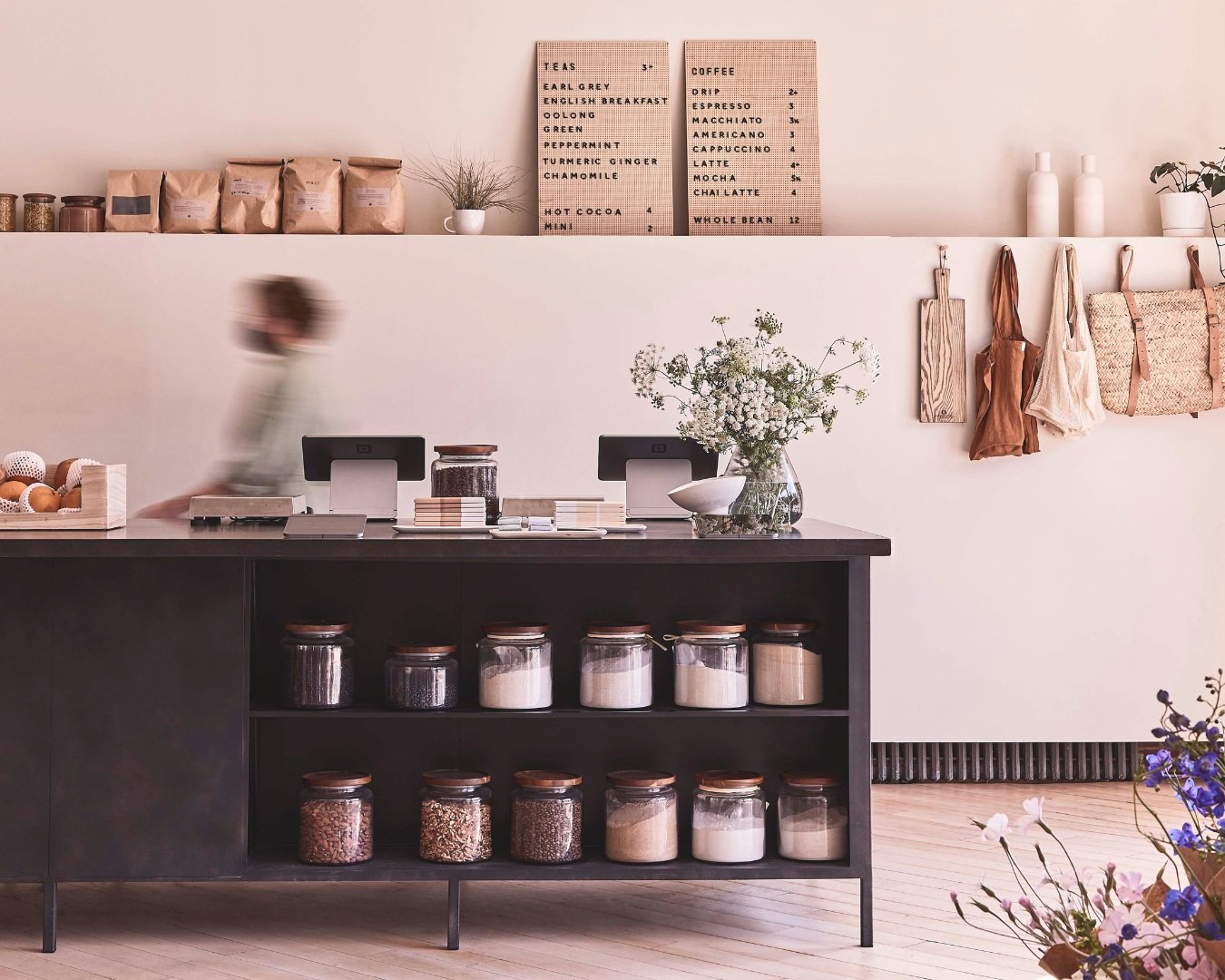Time & Temperature
"What I like about having my own bakery and my own way of doing things is that the possibilities of discovery are endless. My mind is open because I wasn’t ever taught one precise way it’s done. I’m here, and I want to learn."
- David Chiappinelli
This week, we sat down with veteran turned artisan baker David Chiappinelli (affectionately referred to as Baker Dave) who owns local bakery, Bella's Bake Shop with his wife Tatyana. Baker Dave has recently joined the Mast family to launch our Mast Market sourdough bread program. He unwaveringly took on the unique challenges of baking with our freshly milled, organic flour to create deliciously complex loaves, baguettes, and croissants. Our flour begins with local, certified organic, New York grown, heritage grains so Baker Dave is literally baking in our connection to the land - and it shows.
With his talent and passion for baking, it might be surprising to learn that Baker Dave is a West Point graduate and former scout platoon leader in the Army's Cavalry branch. This unexpected path, his omnipresent smile, easy going nature, and unending curiosity about his craft, makes for a wonderful partnership and truly unique story (not to mention heavenly bread). Enjoy our conversation.
Mast Journal: Could you walk me through what a typical day looks like for you as a baker?
Dave: Generally it’s a wake-up between 2:30 and 3:30 in the morning and getting to the shop. We’re a pretty small shop, but we do a lot. We’re usually starting off by baking bread right away and getting stuff in the oven, then starting other doughs and taking out croissants so they begin their proofing process out of the fridge. So we’re getting three things going on immediately, and we’re also creating doughs for the next day. It’s kind of a triple multitask, and it’s a big backwards planning project. Some of these things take multiple days to make, so you really have to predict the future a little bit.
Mast Journal: You have a very unique path to baking. What inspired you to pursue it professionally?
Dave: My goal was to have my own business, because obviously in the Army, I wasn’t running that. In my past, I was always working for somebody and the ultimate goal was to be the owner of a small business and be the ultimate decider of my own fate. From my family’s perspective, my mother is of Armenian descent and my father is of Italian descent, and both of those cultures really touch on food in a large way. As a family, cooking and baking were really just what we did. It’s really been a lifelong experience of testing, and doing different types of experimentation like a chemistry set.
Mast Journal: Being self-taught, how did you approach the craft of artisan baking and what did that education look like for you?
Dave: A lot of reading. I lived in New York City for a number of years, and I was exposed to so many different cultures and cuisines. I had the opportunity to taste some of the best bread, and not necessarily see the process, but I could say, ‘Who’s making the best baguette in the city?’ So with seeing, tasting, reading, and using the Internet, I would take and meld together the techniques of multiple different bakers. That was just a long process of tweaking and making micro adjustments, and really just failing, which is so important. I’m still learning every day, which is all part of the process. No matter whether we get a great-looking loaf of bread or mediocre-looking loaf, we should always step back, take a look at it, and say this went well, and why? Or this failed, and why? In the Army, it would be called an AAR process, which is “After Action Review.” To have this self-reflection and be disciplined enough to do that review every single time, that’s when you learn and grow over a long period of time. As we’re having this conversation, I’m realizing how much of a perfectionist I sound like [laughs].
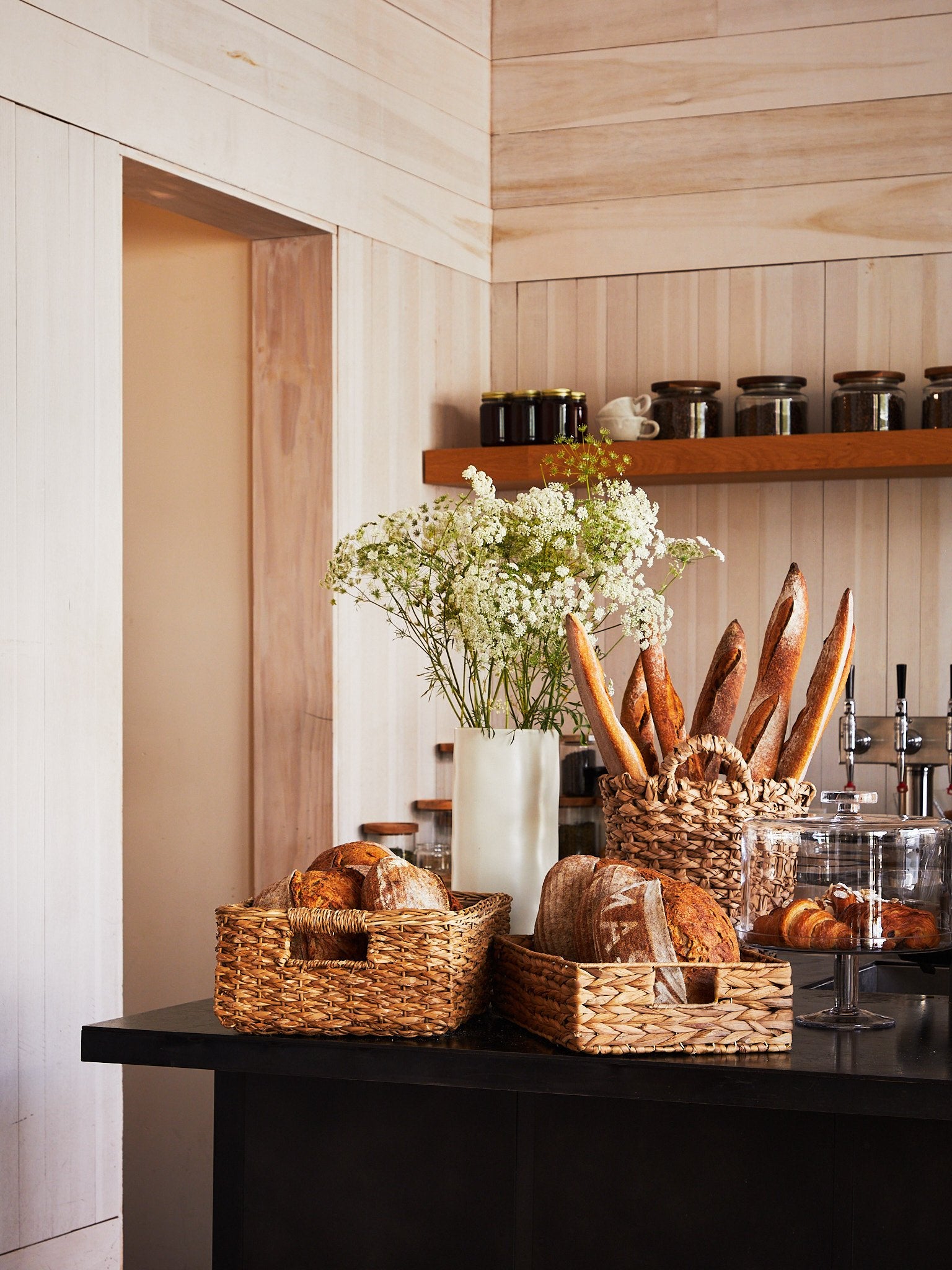
Boules, baguettes, and croissants by Baker Dave. Photography by Kate Jordan
Mast Journal: Baking and family tend to have strong ties. You also named your bakery after your daughter, Bella. Is there a baking tradition you’d like to carry on in your family?
Dave: I would love to see it, but based on how I was raised, my parents always gave us the leeway and never forced our hand too much in one direction. The one thing I can think of is my mother, who leans more towards the creative side, has a collection of cookbooks – I should say a library, actually. That’s no exaggeration. It’s the largest bookshelf, and it’s all cookbooks that she’s collected over sixty years, so from that perspective, she encourages us to try different things and will always give constructive feedback on what we make. Part of the bakery’s success is from my family’s ability to give constructive criticism on our bakes. I even made raviolis recently, and my mother said, ‘They’re too thick.’ I have to preface it with, ‘I know they’re too thick, by the way.’ But she says it anyway.
Mast Journal: What do you think is something most people wouldn’t know about baking unless they were a professional baker?
Dave: I’d say it’s the time that it takes to produce a loaf. One of the most misunderstood things about baking is how long it takes to actually develop the taste of the product. A chef could make a really good dish in maybe an hour or two hours, but at a restaurant, it’s going to be pretty fast. You’ll get an order, and you’ll have certain things prepped for it. For baking, we’ll take an order, but to get the taste that you need, there’s fermentation that needs to take place. We have to mix something the day before in order to have the starter rise perfectly when you should be mixing it with water, flour, and salt. So it’s the process that’s different from a normal restaurant. The taste really needs to develop and have an ongoing chemical reaction.
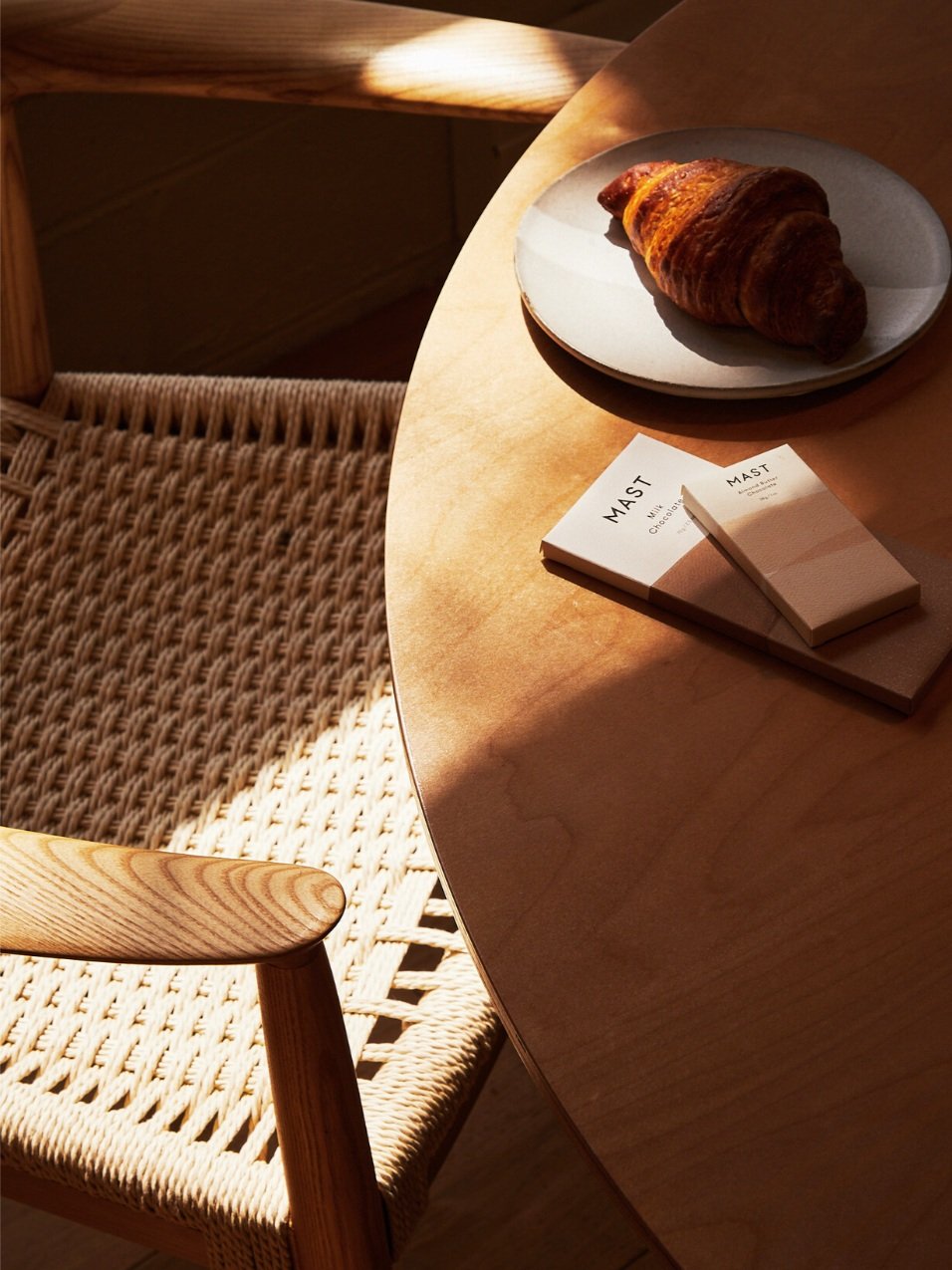
Croissant and chocolate. Photography by Kate Jordan
Mast Journal: Do you continue to read voraciously about baking like when you were self-teaching, or do you not consume much baking literature now that you’re immersed in it?
Dave: You can find me with many different books every day. In my briefcase, there are usually one or two or two of my favorite bread books in there. I’ll use them for ideas, new recipes, new techniques, and ways to incorporate fresh, local, organic ingredients. You’d be surprised about things you can pick up through books and even social media. Just small things – what I like about having my own bakery and my own way of doing things is that the possibilities of discovery are endless. My mind is open because I wasn’t ever taught one precise way it’s done. I’m here, and I want to learn.
Mast Journal: Absolutely. I’ve seen that you’ve harvested your own maple syrup in the past as well. How did you get into that?
Dave: This ties into the family traditions conversation. When we were children, my father built a stone stove, which he’d put a huge cast iron pan on. We’d tap our trees, collect all the sap, and boil it down. There were a number of sugar maples on our property growing up, and he bought some backyard sugaring equipment. Eventually my parents moved houses, and I inherited some of that equipment. Luckily, I just so happen to have a few sugar maples on my property, so every March we end up collecting the sap and we’ve done that for the past four or five years. We do wood-fired maple syrup, so when you cook it with wood, there’s a noticeable difference in the taste.
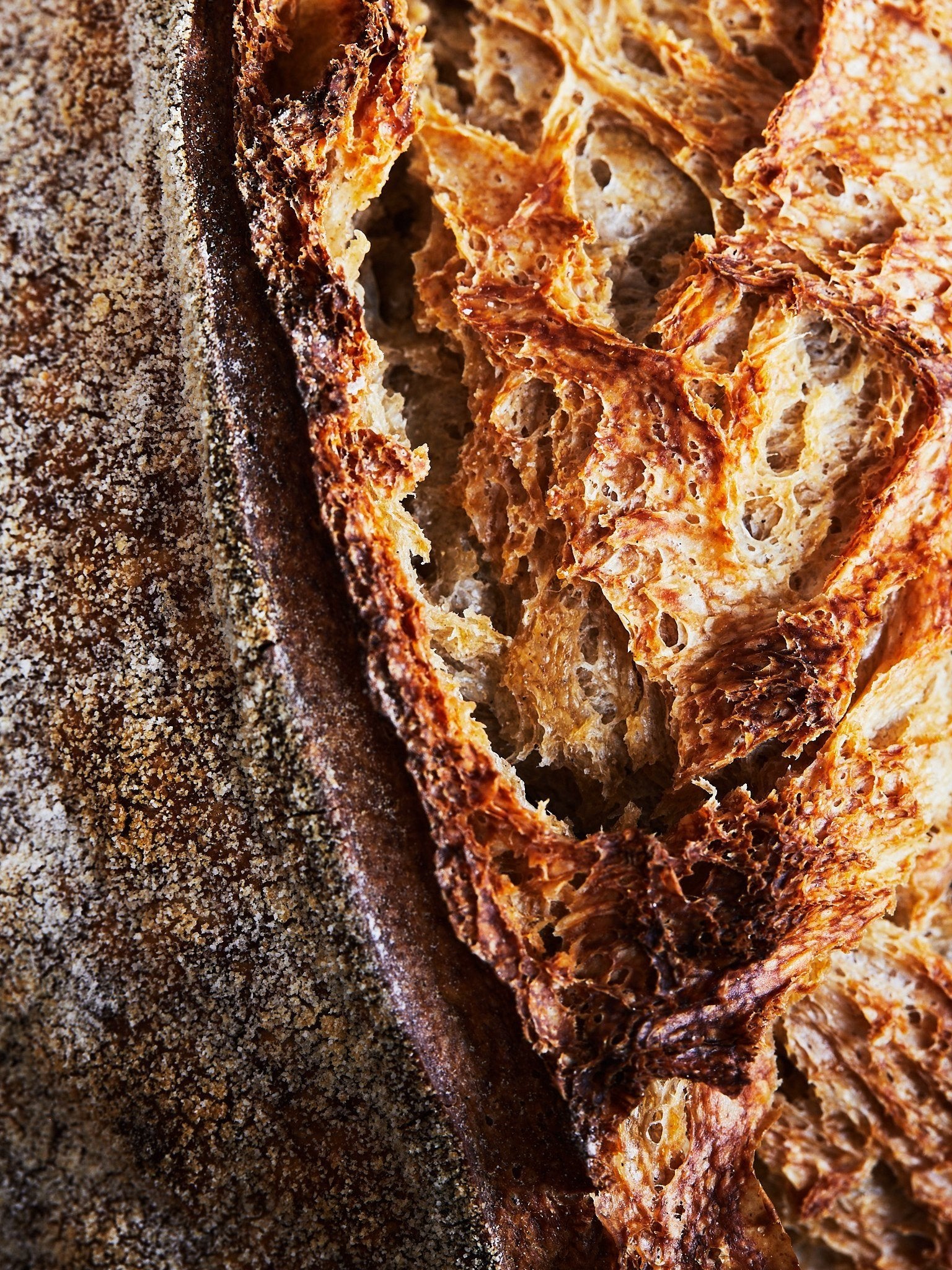
Sourdough, close up. Photography by Kate Jordan
Mast Journal: What do you feel is the most challenging part of what you do?
Dave: From a baking perspective, timing. It has everything to do with time and temperature. If I put dough on a table that’s 75 degrees versus a table that’s 65 degrees, you’re going to have much different reactions with that, whether you’re forming croissants and the butter is heating up faster, et cetera. So it’s managing all of the outside inputs that are not under your control, and having those managed to the best of your ability so you produce a consistent product. You really have to constantly adapt and overcome.
Mast Journal: What is your favorite part about what you do?
Dave: I still get really passionate about the successful bakes, and the ability for me to tweak things when it doesn’t go right. Even when things don’t turn out right, I look at that as an opportunity to make them better. I was making a video of our sourdough process last night, and I was showing Tatyana, my wife, and she was like, ‘You just came home from making bread until 6pm, and here you are on the couch watching these bread videos.’ She was laughing. So there really is still a passion there, and it’s something I just really enjoy.
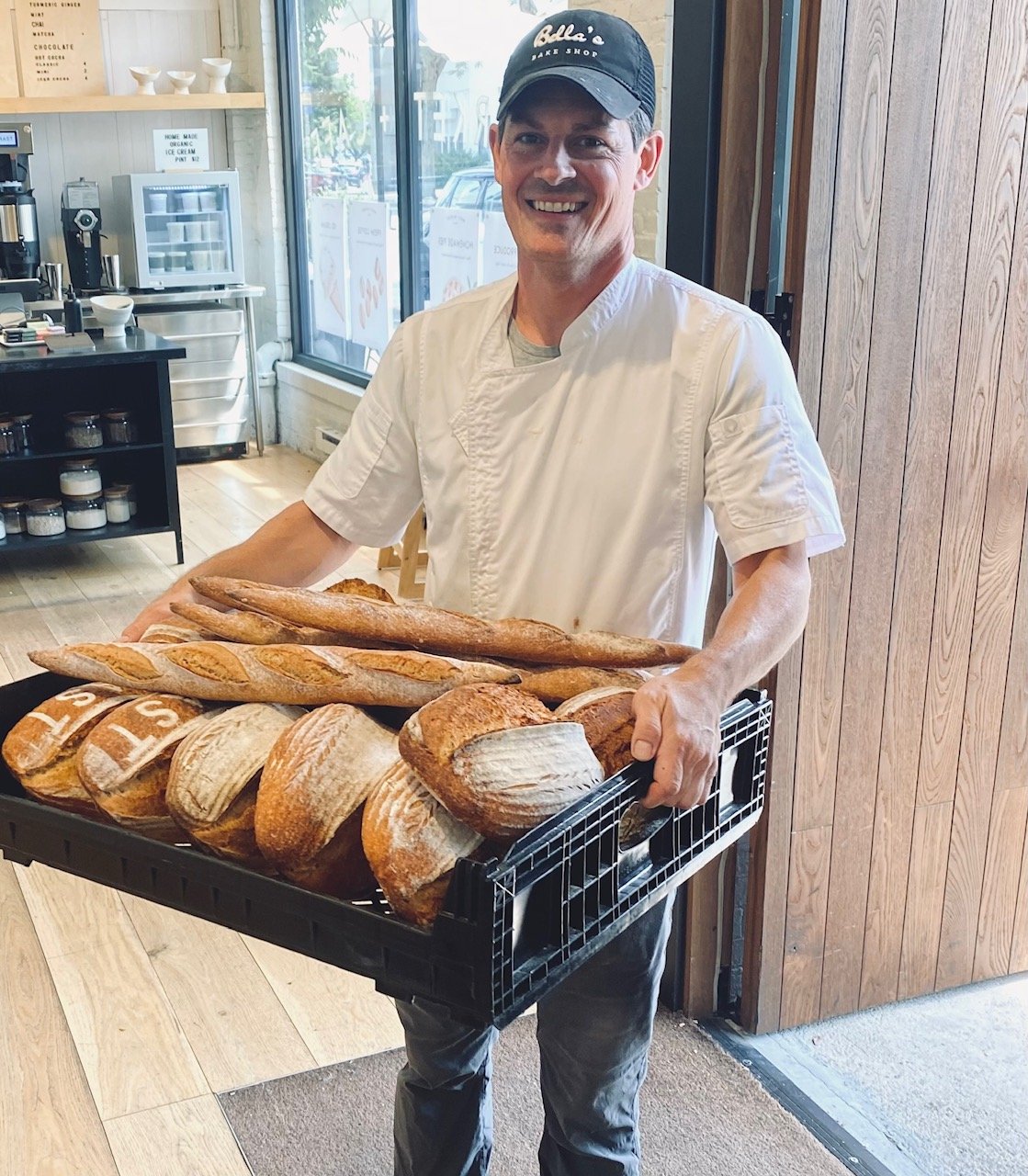
More from The Journal
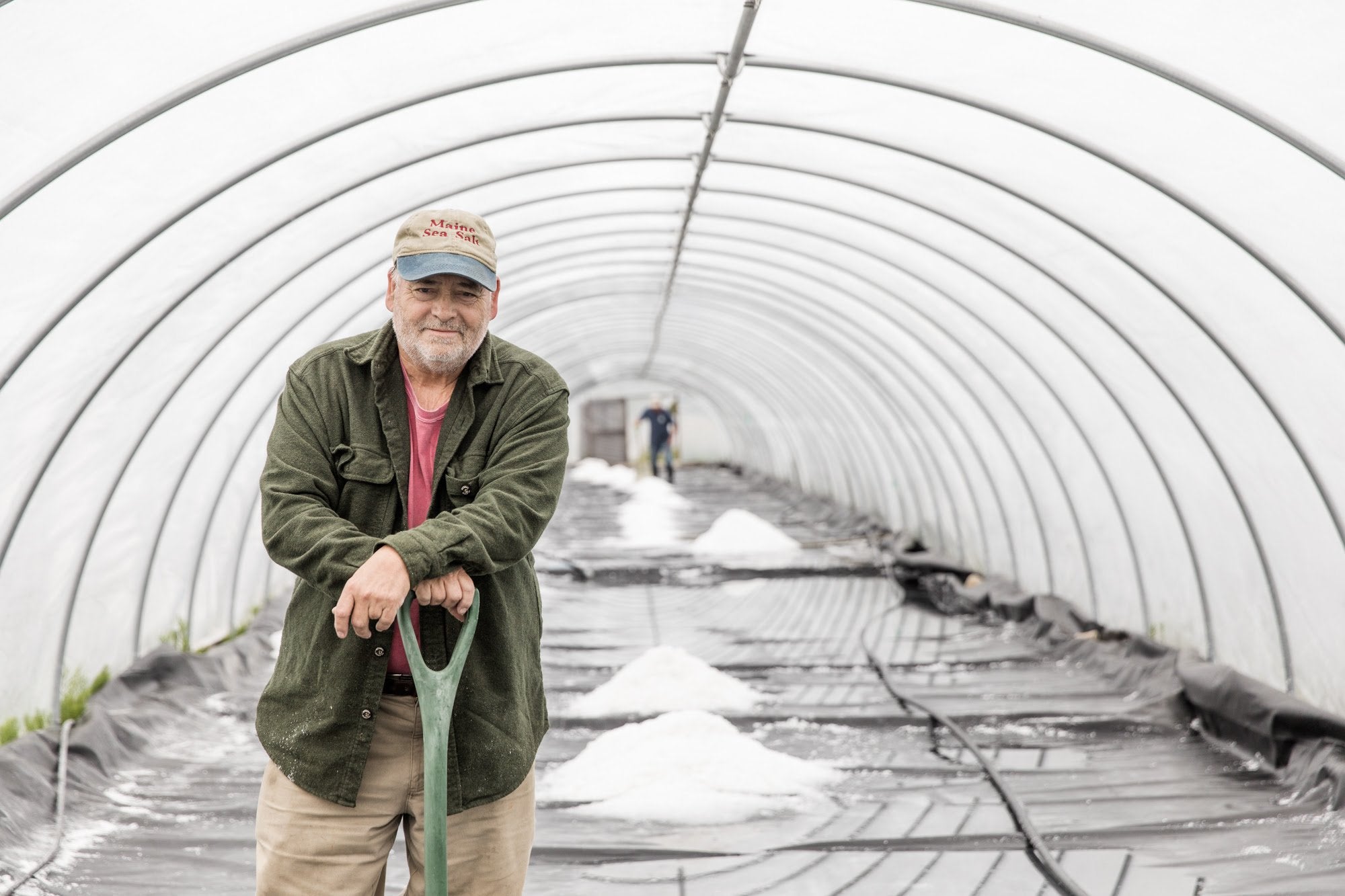
In conversation with artisan salt pioneer, Stephen Cook, of the Maine Sea Salt Company.
Read more
